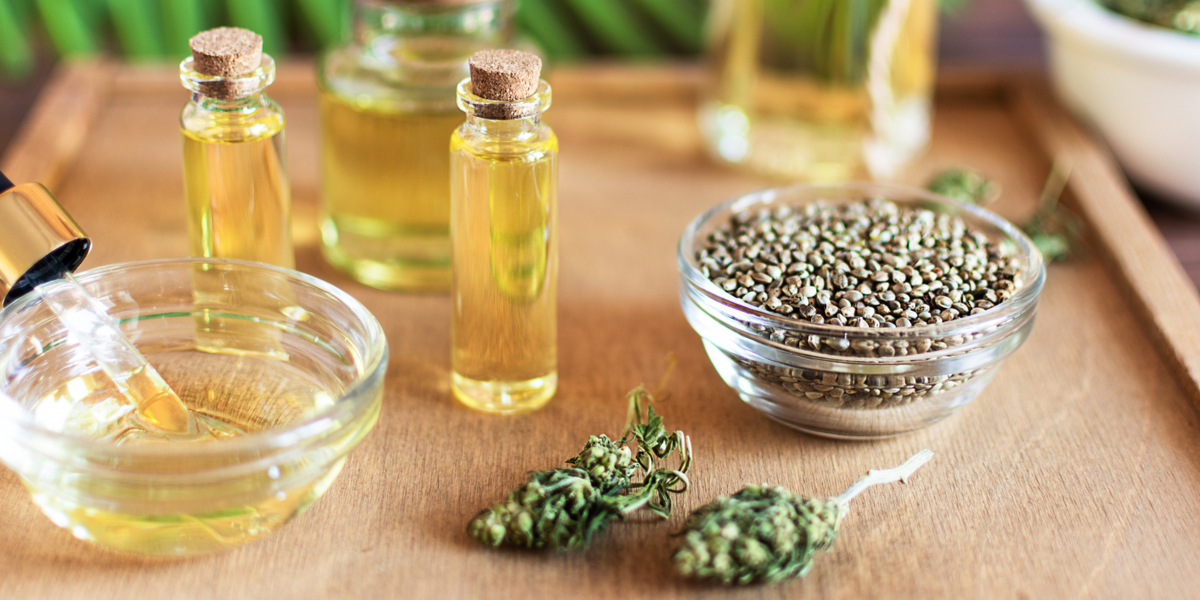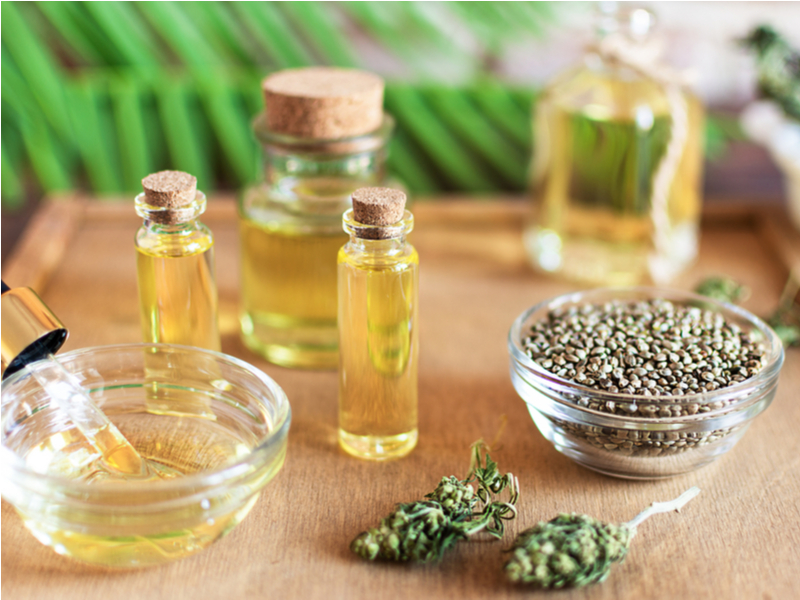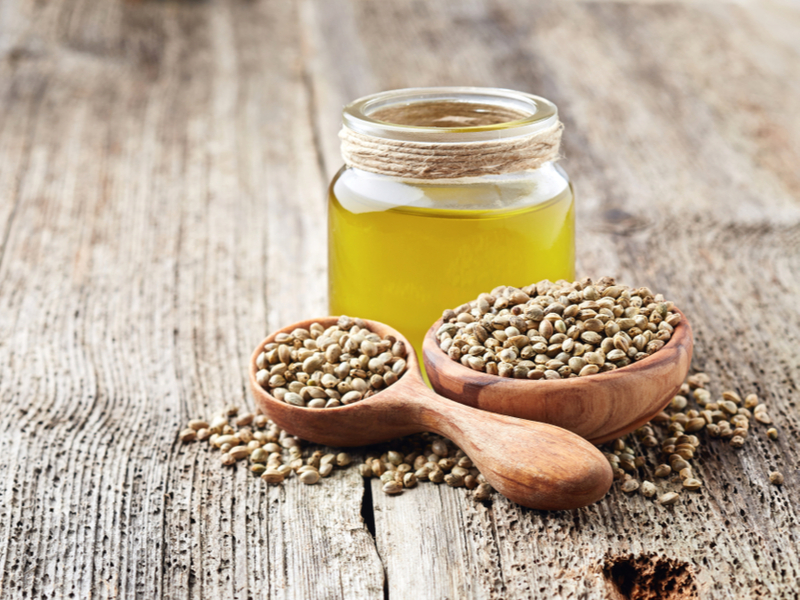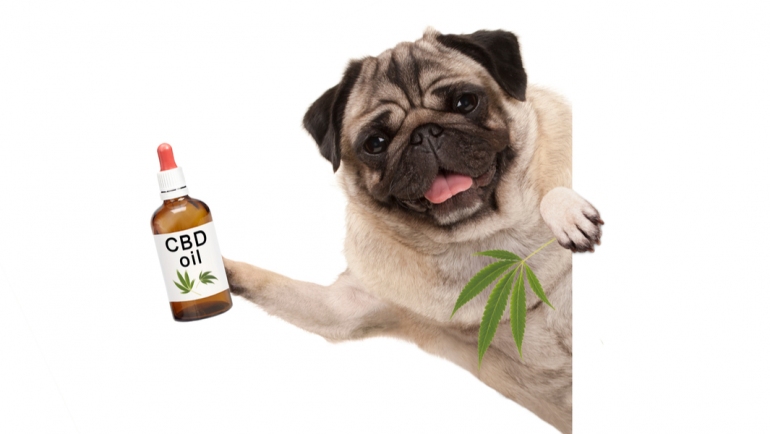5 Best Carrier Oils for CBD

New and frequent users of CBD products alike find themselves tasked with understanding all of the terms used in the hemp community. At some point, hemp users will encounter the phrase “carrier oil” and knowing what this means can make the difference between buying a good or bad product.
This article talks consumers through one of the most common phrases in the hemp community vocabulary.
What are Carrier Oils?
Simply put, brands mix carrier oils with hemp compounds to dilute or “carry” them for human consumption. People cannot consume pure CBD on its own and therefore needs a method of delivery.

The carrier oils that are in hemp products are typically essential oils with scents. The scent of the carrier oil is used to mask the strong, pungent smell of CBD isolates in hemp products.
On their own, essential oils have their own possible health benefits. The type of carrier oil chosen to make CBD oils may subtly change the health properties of that oil.
Why does CBD Need Carrier Oils?
The main purpose of a carrier oil in a hemp product is to streamline the consumption process of the product. Without a carrier oil, the body will strain to process this hemp compound on its own.
Cannabidiol (CBD) is fat-soluble. This means that this chemical compound binds together in fat better than it does in water. Most carrier oils used in hemp oils contain large amounts of fat in order to keep CBD strongly bound together.
Similarly, the fat in carrier oils binds together with fat molecules in the body which can then aid in the easy consumption of CBD.
Best Carrier Oils for CBD
The best kind of carrier oils has a high-fat content. Not only does the fat in these oils help keep the CBD bound together strongly, but these fat molecules also keep the product fresh and potent.
Cannabinoids are kept active and fresh when suspended in fat molecules. CBD carrier oils high in fat can extend the shelf life of hemp products. The chemical structure of fat means that this molecule oxidizes at a slower rate.
In the same vein, the potency of cannabidiol also remains high when combined with fatty oils. The bioavailability of a product depends primarily on the dosage and the method of consumption.
The hemp community categorizes CBD oils as sublingual products. This means that users consume this product by allowing the glands underneath the tongue to absorb the compound directly into the bloodstream. It is the carrier oil that transforms cannabidiol into this liquidized form that can be consumed sublingually.
Hemp Seed Oil
Hemp seed oil is not the same as hemp oil or CBD oil. Brands create this kind of oil product by extracting from the small seeds of the cannabis sativa plant.

Brands use hemp seed oil typically used as a carrier oil for topical cannabidiol products. Studies have shown that this kind of oil contains vitamins and fatty acids that may benefit the skin.
Having hemp seed oil as a carrier oil means that when the CBD product is applied to the skin, the consumer gains the benefits of both CBD and hemp seed oil.
MCT Oils
Medium-chain triglycerides (MCT) are fat molecules found in coconut oil and palm kernel oil.
This is the most common CBD carrier oil as it contains high amounts of fat while also activating its own health benefits.
Once MCT oils are processed in the liver, they are then metabolized into energy or ketones. Some studies have shown that MCT oil may be able to prolong one’s energy levels and help with weight loss.
Avocado Oil
On its own, avocado oil contains large amounts of oleic acid and has a thick consistency. This kind of carrier oil is not as popular in the hemp community, but its benefits for skin care make it a good choice for topical CBD products.
Avocado oil dries very slowly and is durable. This makes it ideal for topical products that need to remain on the skin.
Arnica Oil
Many people used arnica products on their own to help with physical pain or discomfort. Used a gel or a cream, arnica can help soothe bruises or swelling.

Arnica’s soothing properties match CBD’s own potential pain-relieving benefits. Studies have shown that cannabidiol may be able to reduce pain caused by inflammation through interaction with receptors in the endocannabinoid system.
Brands propose that the combination of these two organic pain-relieving remedies may be able to greatly help users.
Sunflower Oil
Manufacturers extract sunflower oil directly from the sunflower plant. It is not as high in fat content as other alternative carrier oils, but it does have its own benefits to share.
Many people often use sunflower oil in their food. Users who are interested in trying recipes that are infused with CBD can use cannabidiol oils that have sunflower oil carriers.
Final Thoughts
Reputable brands choose every ingredient used in their hemp products with purpose and care. This means that the type of carrier oil that is used in their CBD oils was chosen for a reason.
Knowing and understanding what this reason may be can help users choose the right CBD oil for them and their needs.
Is CBD Legal? Hemp-derived CBD products (with less than 0.3 percent THC) are legal on the federal level. Moreover, these statements have not been evaluated by the Food and Drug Administration. This product is not intended to diagnose, treat, cure, or prevent any disease and products that have not been FDA approved. Likewise, you must be at least 21 years old to purchase these products. Talk to your physician or medical doctor for additional information.



